(3 minute read)
Did you talk to your kids about feelings on World Mental Health day (10th October)? Missed it? No worries (or any other negative feelings please!) We’re going to discuss how we can help our kids develop healthy ways of talking about their feelings.

Recent studies have shown that mental health has declined in almost 40% of school children in England, prompting organisations such as ITV to launch campaigns like Britain Get Talking - with a focus on helping young people communicate their feelings with the people around them. If you have older children, why not try out this handy homework from the campaign with them.
Just like adults, young kids have a wide range of complex emotions, but don’t necessarily have the language or understanding to express them, or recoginse them in others. This is known as emotional intelligence. The early years of a child's life, spent both at home and in school, play a huge role in shaping their emotional intelligence and overall mental health. One of the increasingly popular methods of developing this in schools is called Social and Emotional Learning (SEL for short).
SEL means that children should be able to identify and label emotions so children are able to recognise and talk about a range of different emotions; relate feelings and thoughts to behaviours so they can see what triggers and maintains these emotions; and regulate their emotions through learning about simple strategies and tools to manage them. Developing these skills of self-awareness and self-management help build for more success in education, career and life!
Here at Teach Your Monster, we’re really interested in helping this process of emotional development in young children through play. So much so that we are creating an exciting Social and Emotional Learning (SEL) minigame that empowers children to understand and manage their feelings effectively.
If you have feelings (!) about this topic, we’d love for you to join our Teach Your Monster Feelings Facebook group, where you can share your experiences, insights, and strategies for teaching children about feelings as well as helping us develop the minigame and get exclusive updates on it’s development!

In the meantime, here are some strategies you could use at home to promote mental wellbeing at home:
- Open Communication: Encouraging open communication with young children is crucial. Create a safe space and time where kids feel comfortable expressing their feelings without judgement.
- Emotional Literacy: Teach children to identify and label their emotions. Use books, art, and storytelling to help them recognise and understand different feelings.
- Empathy: Encourage children to understand and show empathy towards the feelings of others. This helps them build social skills, relationships, and emotional resilience.
- Healthy Role Modelling: Demonstrating healthy ways to manage stress, express emotions, and resolve conflicts can significantly impact a child's emotional development.
- Routine and Structure: Establishing a daily routine provides children with a sense of security and predictability. This stability can reduce anxiety and promote positive mental health.
- Encourage Play and Creativity: Play is essential for a child's mental health. Encouraging creative activities helps children express their emotions and develop problem-solving skills.
- Physical Health: A balanced diet, regular exercise, and sufficient sleep are essential for a child's overall wellbeing. Physical health is closely linked to mental health. If you have a fussy eater at home, why not try out our free game Teach Your Monster Adventurous Eating to make those foods a little less scary and a lot more fun!
References
ITV’s ‘Britain Get Talking’ Mental Wellness Campaign
Mind - World Mental Health Day
Impetus Social and Emotional Learning Report - Dec 2022
NHS Mental Health of Children and Young People In England Survey - September 2021
As parents and educators, we all want our children to thrive in education, especially in mathematics. Building a strong foundation in math can significantly impact a child's confidence and success as they progress through their educational journey. One crucial aspect of this foundation is learning number bonds at the ages of 4 to 6. In this article, we'll explore the importance of teaching number bonds during this critical developmental stage and how it lays the groundwork for mathematical confidence in the future.
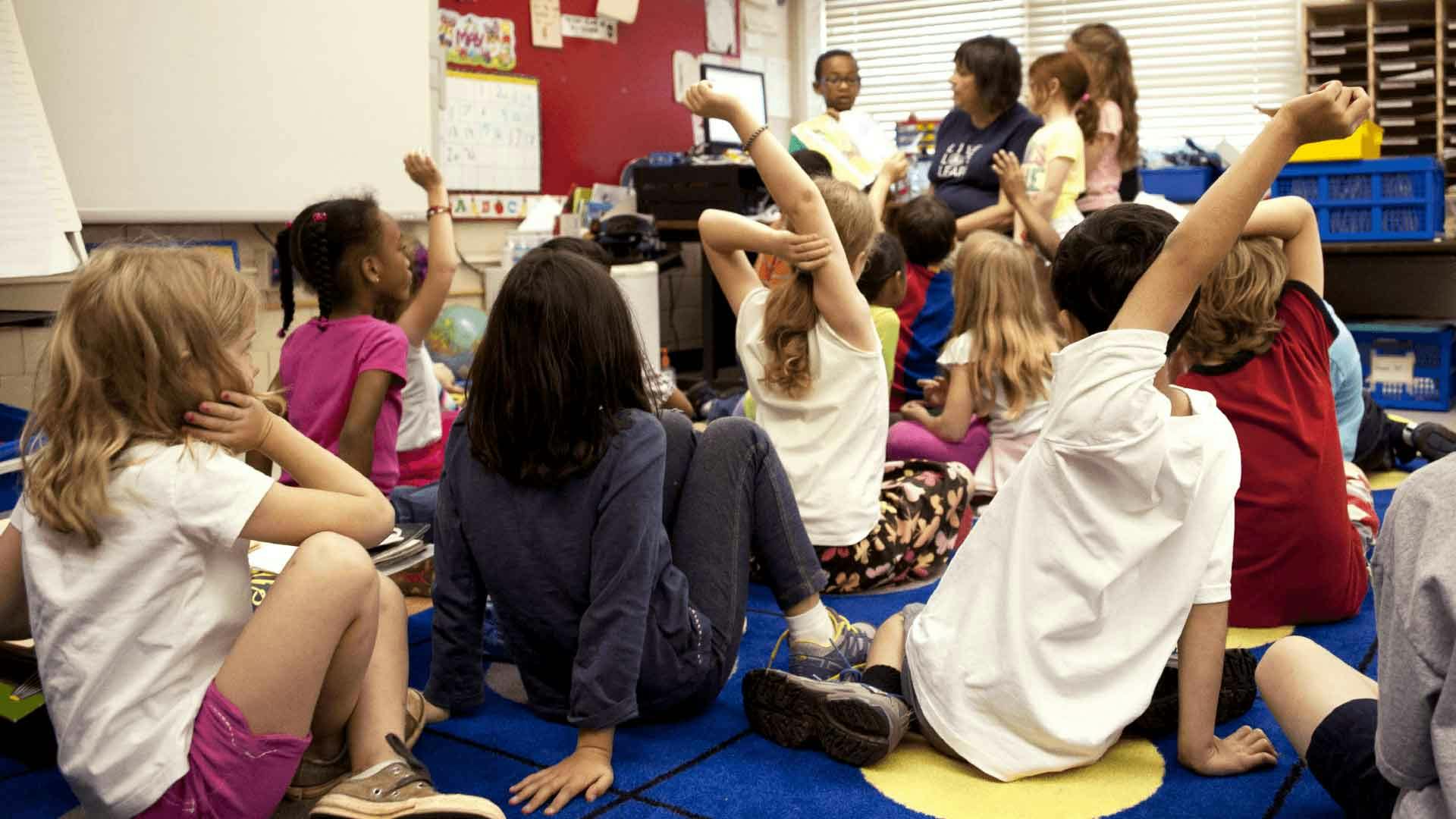
What Are Number Bonds?
Number bonds are a fundamental mathematical concept that helps children understand how numbers are related. A number bond consists of three parts: a whole number and two parts that add up to make that whole. For example, in the number bond 5 = 3 + 2, the number 5 is the whole, and 3 and 2 are the parts that combine to equal the whole.
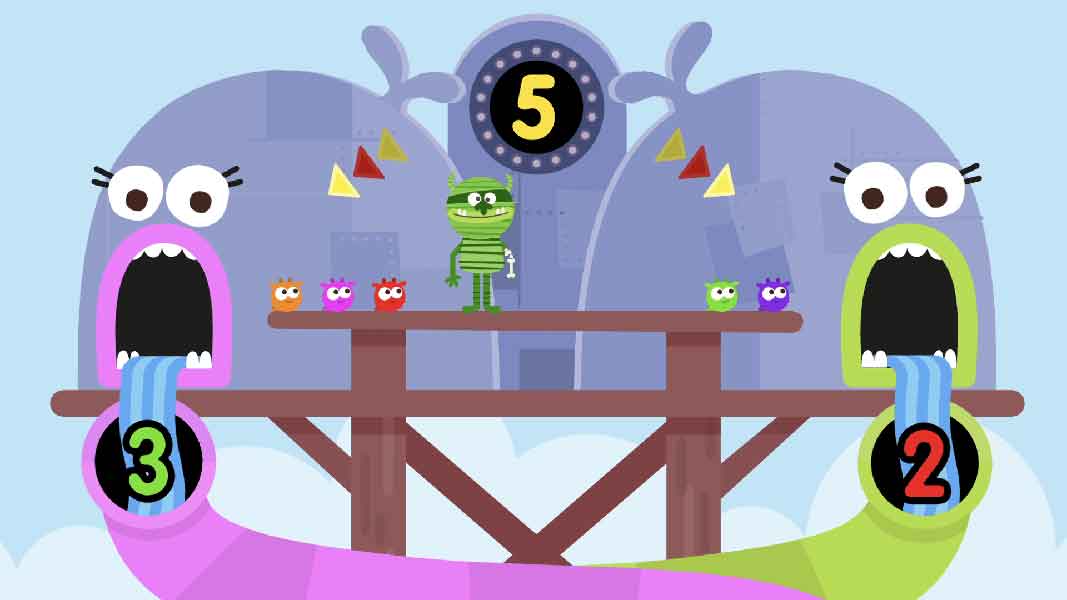
The Importance Of Learning Number Bonds Early
Conceptual Understanding
Learning number bonds at a young age help children develop a deep knowledge and understanding of addition and subtraction. Instead of memorising isolated math facts, they learn all about the relationships between numbers and the different ways in which they break apart and go back together. This understanding is the foundation upon which more advanced mathematical concepts can be built.
Confidence Boost
When children can easily break down numbers into their constituent parts, they gain confidence in their ability to work with numbers. They feel less intimidated by math problems because they know they have the tools to tackle them. This early success fosters a positive attitude towards math, which is crucial for long-term success.
Mental Math Skills
Number bonds enable children to perform mental math calculations quickly and accurately. As they progress through their education, they'll find this skill invaluable in solving more complex problems. Mental math proficiency not only saves time but also enhances problem-solving abilities.
Stronger Problem-Solving Skills
Children develop strong problem-solving skills from learning number bonds. They learn how to think critically and logically about mathematical concepts, which are essential skills in various aspects of life as well as math.
Better Prepared for Future Concepts
Number bonds provide a solid foundation for learning more advanced math concepts, such as multiplication and division. When children have a firm grasp of the relationships between numbers, they are better equipped to tackle these higher-level concepts.
Teaching Number Bonds Effectively
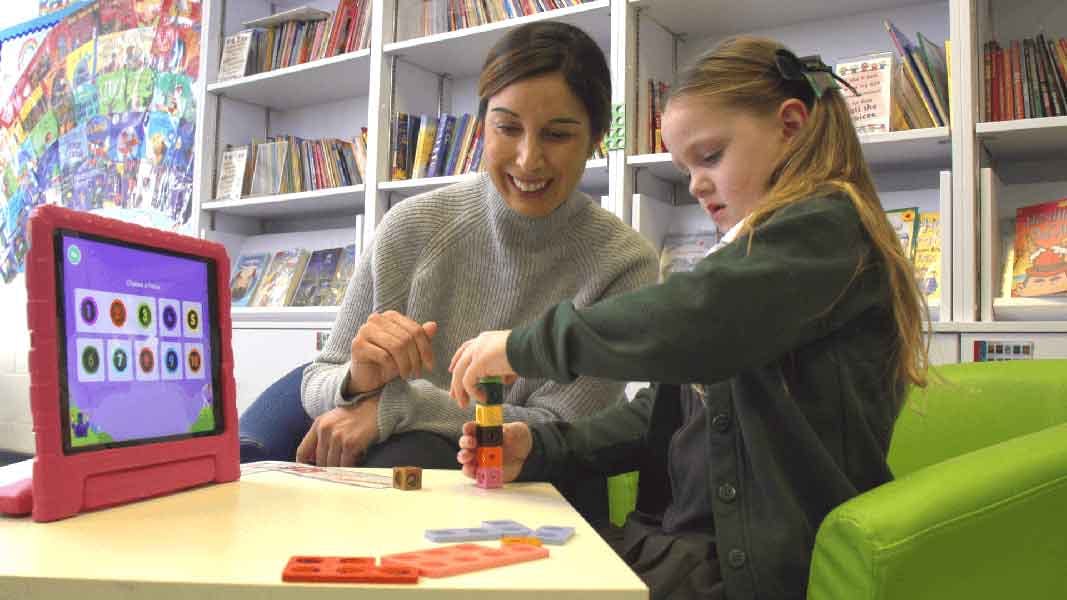
Now that we've established the importance of teaching number bonds at a young age, let's look at some strategies for effective instruction:
Use Visual Aids: Visual representations, like diagrams and pictures, can help children grasp the concept of number bonds more easily.
Hands-On Activities: Incorporate hands-on activities, such as counting objects or using manipulatives like counters or beans, to make learning number bonds interactive and engaging.
Repetition and Practice: Reinforce number bonds through regular practice and repetition. This helps children internalise the concept.
Real-Life Examples: Show children how number bonds are used in real-life situations, such as sharing toys or dividing snacks among friends.
Positive Reinforcement: Celebrate small achievements and provide positive feedback to boost your child's confidence in their math abilities.
Teaching number bonds to children early is not just about helping them with math skills; it's about building a strong foundation to serve them well throughout their educational journey. By understanding the relationships between numbers, children gain confidence, enhance their problem-solving abilities, and are better prepared for more advanced math challenges. Invest the time and effort in teaching number bonds early, and you'll set your child on the path to mathematical success and confidence that will last a lifetime.
Click here to try Teach Your Monster Number Skills for free
Navigating through the world of numbers can be a delightful experience for young minds! Especially with Singapore Math, a method that has become popular globally for teaching kids about numbers in a unique and effective way.
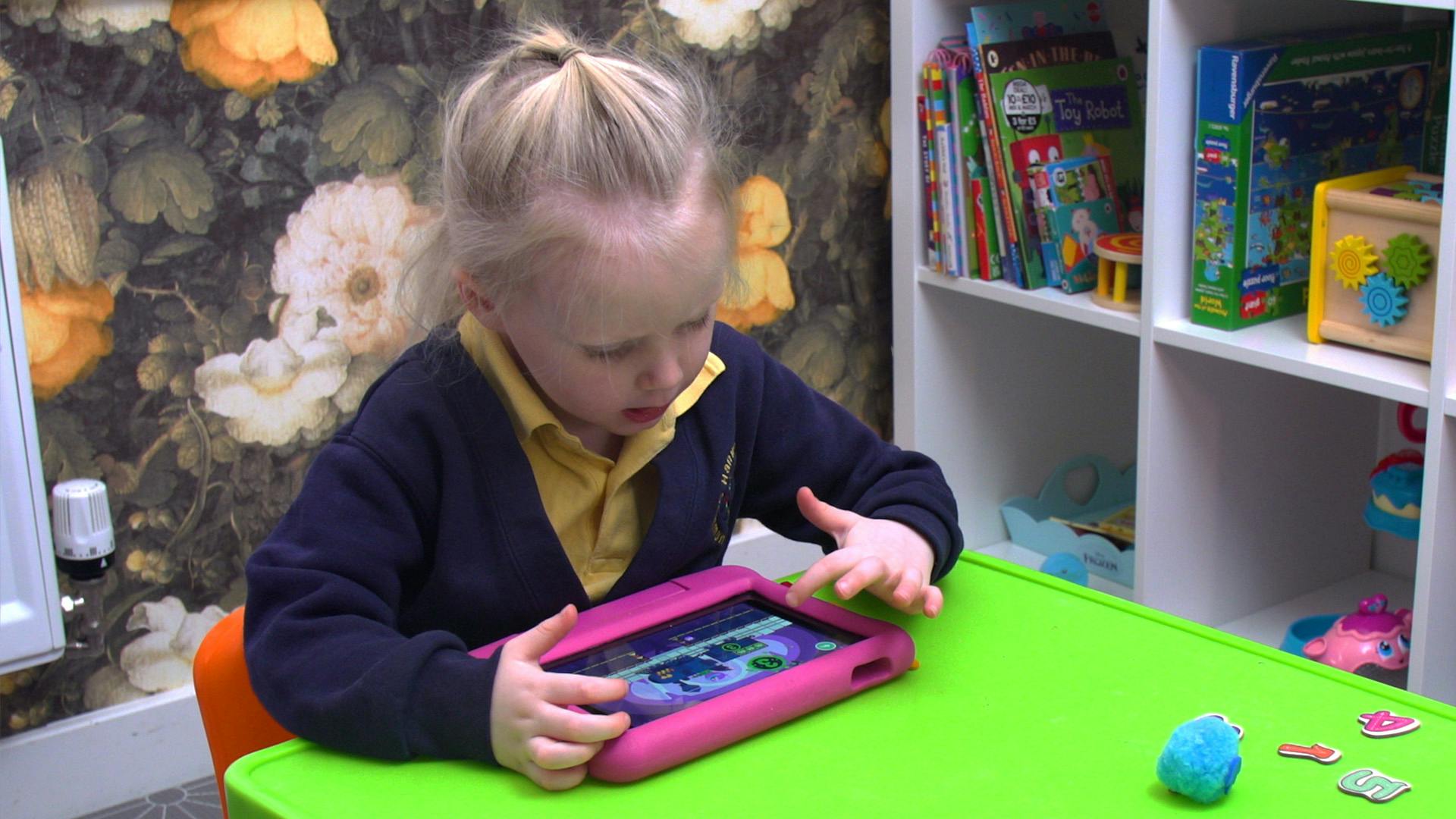
What is Singapore Math?
Singapore Math is more than just a way of teaching math; it’s about helping children understand how numbers work. This method encourages:
Understanding over memorization: Kids get to know why numbers work the way they do, achieving maths mastery.
Visual learning: Using objects and pictures to help explain math.
Mental math: Helping kids feel comfortable to work out problems in their heads.
Step-by-Step Progression: Kids progress from concrete (objects), to pictorial (visual), to abstract understanding (numbers).
Building Confidence with Numbers
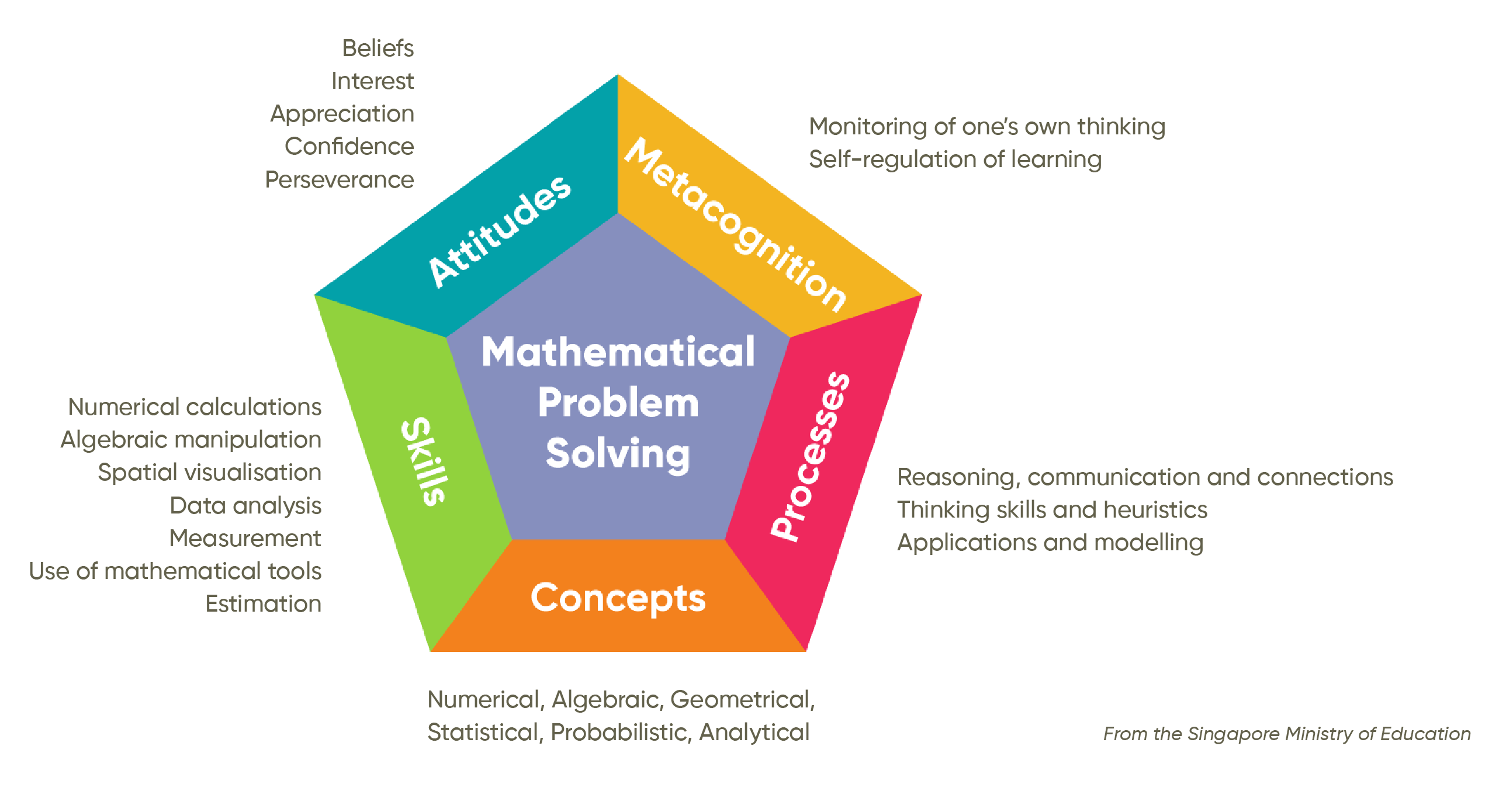
Singapore Math helps kids become friends with numbers. It does this by:
Teaching basics well: Kids really understand the basics of math before moving on.
Making math real: Uses real-life examples so math has context and makes sense.
Practicing regularly: This helps turn understanding into confidence.
Simple Tips for Parents
If you're a parent looking to help your child with math, consider these simple steps:
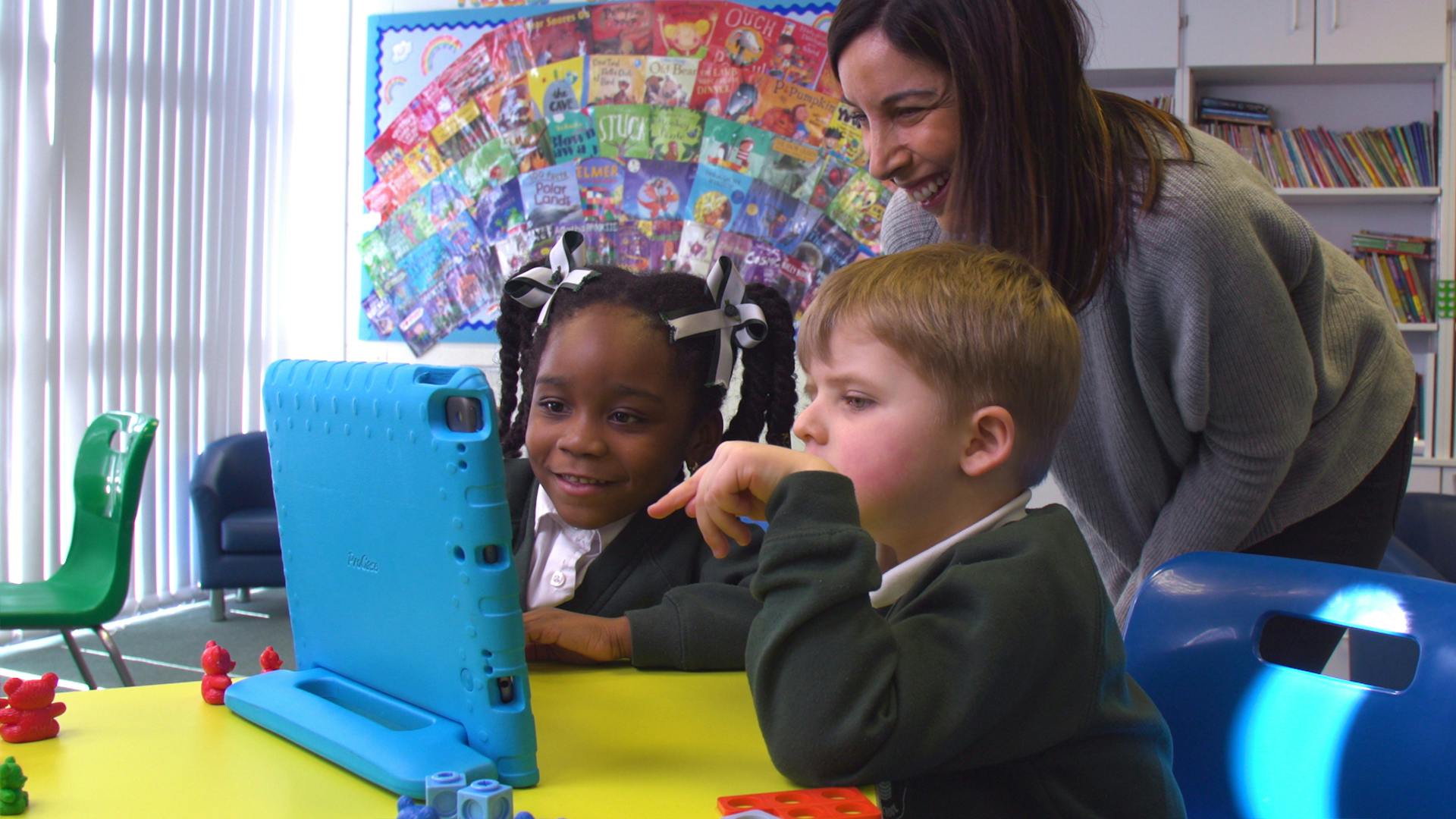
Use objects: Count using things around the house.
Include math in stories: Make numbers a part of bedtime stories.
Talk about numbers daily: Counting fruits or toys can make math a fun daily activity!
Using Teach Your Monster Number Skills
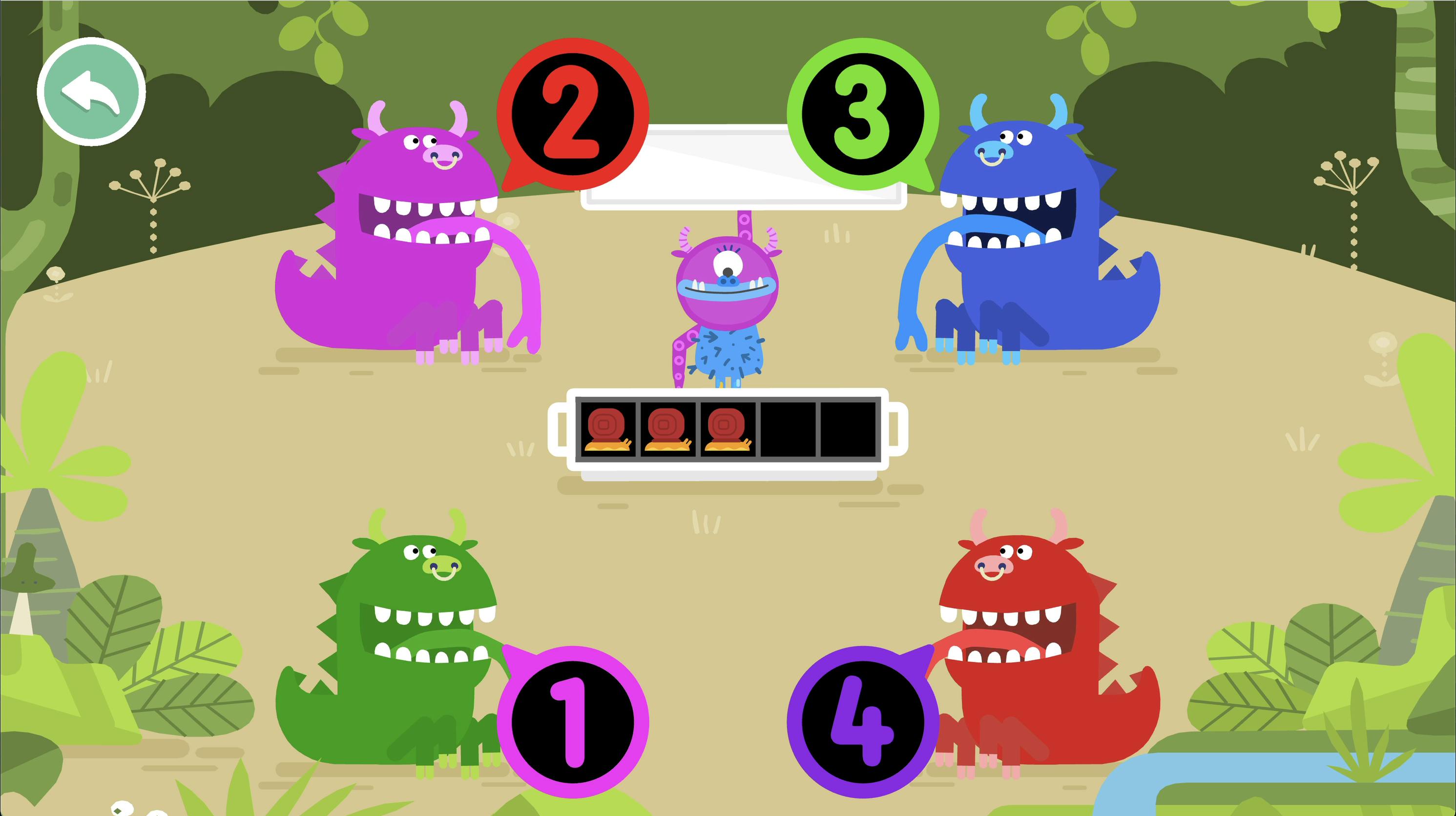
Teach Your Monster Number Skills is a fun app that mixes games with Singapore Maths concepts. It:
Makes learning fun: Kids are engaged and focused on playing the game, while learning fundamental number skills.
Adapts to Your Child: The app changes to suit your child’s learning speed, ensuring they grasp one concept firmly before moving to the next.
Click here to try Teach Your Monster Number Skills for free
Expert Insight
Our math education advisor on Teach Your Monster Number Skills, Bernie Westacott, highlights how visual learning is crucial: "Singapore Maths teaches children to represent a problem in a visual way as something to look at and explore before progressing to more abstract calculation methods."
Dr. Yeap Ban Har, an international authority on the Singapore Math Method, asserts: "One of the key strengths of math teaching in Singapore is the development of number sense before the memorization of number facts."
Charting a Joyful Numerical Adventure for Your Child
Helping your child learn and enjoy math can be simple and effective with Singapore Math. Every child’s learning journey is different, and each step they take towards understanding numbers is one to celebrate!
Remember: With consistent and fun learning, kids will find joy and confidence in their mathematical journey!
Click here to try Teach Your Monster Number Skills for free
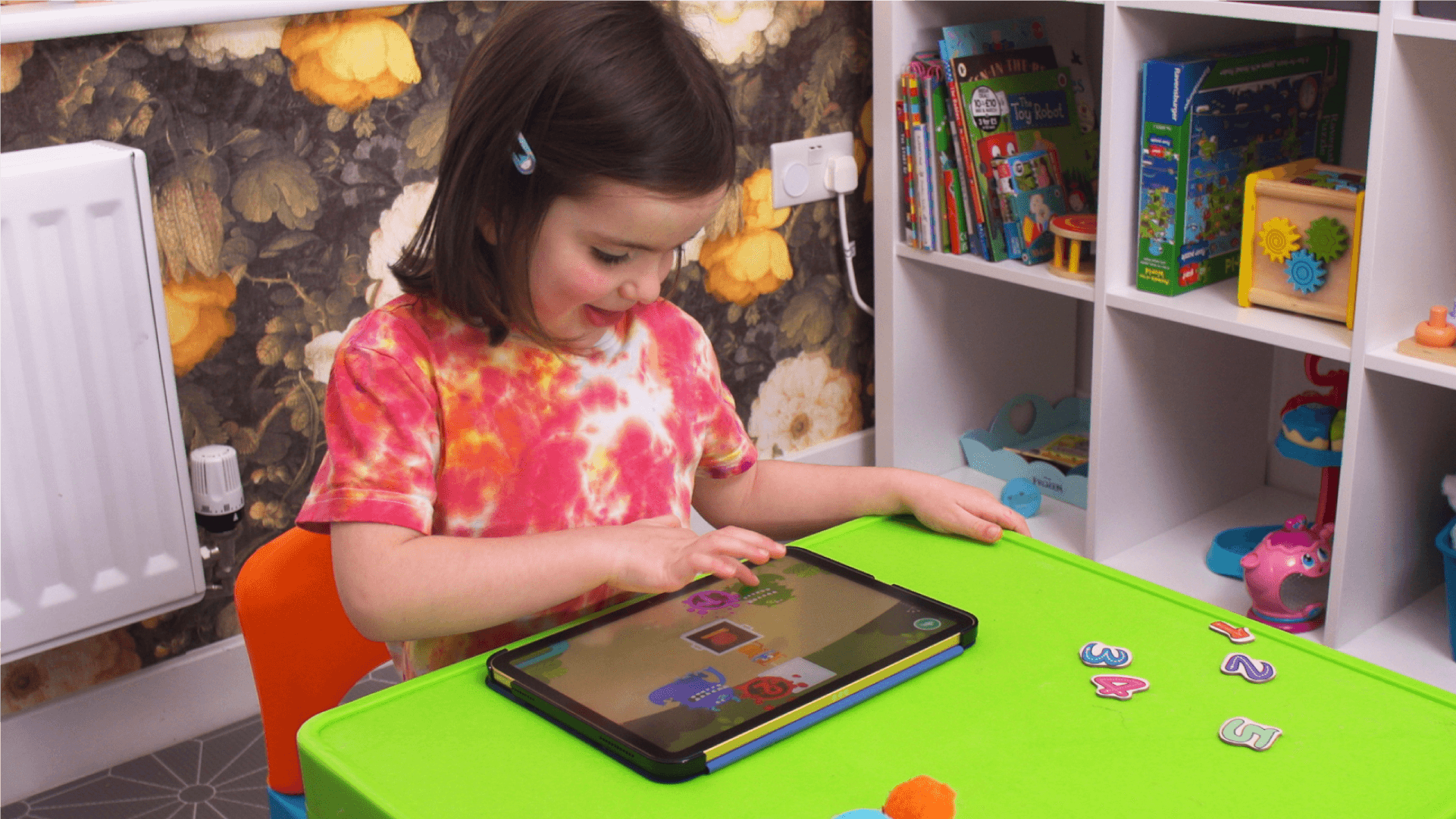
References
Westacott, B. "Exploring Math Visually." Mathematical Exploration Strategies
Dr. Yeap, B.H. "In-depth Number Understanding." Approaches to Singapore Math
Wellness and wellbeing apps designed specifically for children can play a vital role in fostering their holistic development and mental health from a young age - offering a range of age-appropriate activities and resources that promote emotional intelligence, mindfulness, physical activity, and positive habits. Here, we list what we believe are the best wellbeing apps for children to play on Apple, Android, Amazon and web.
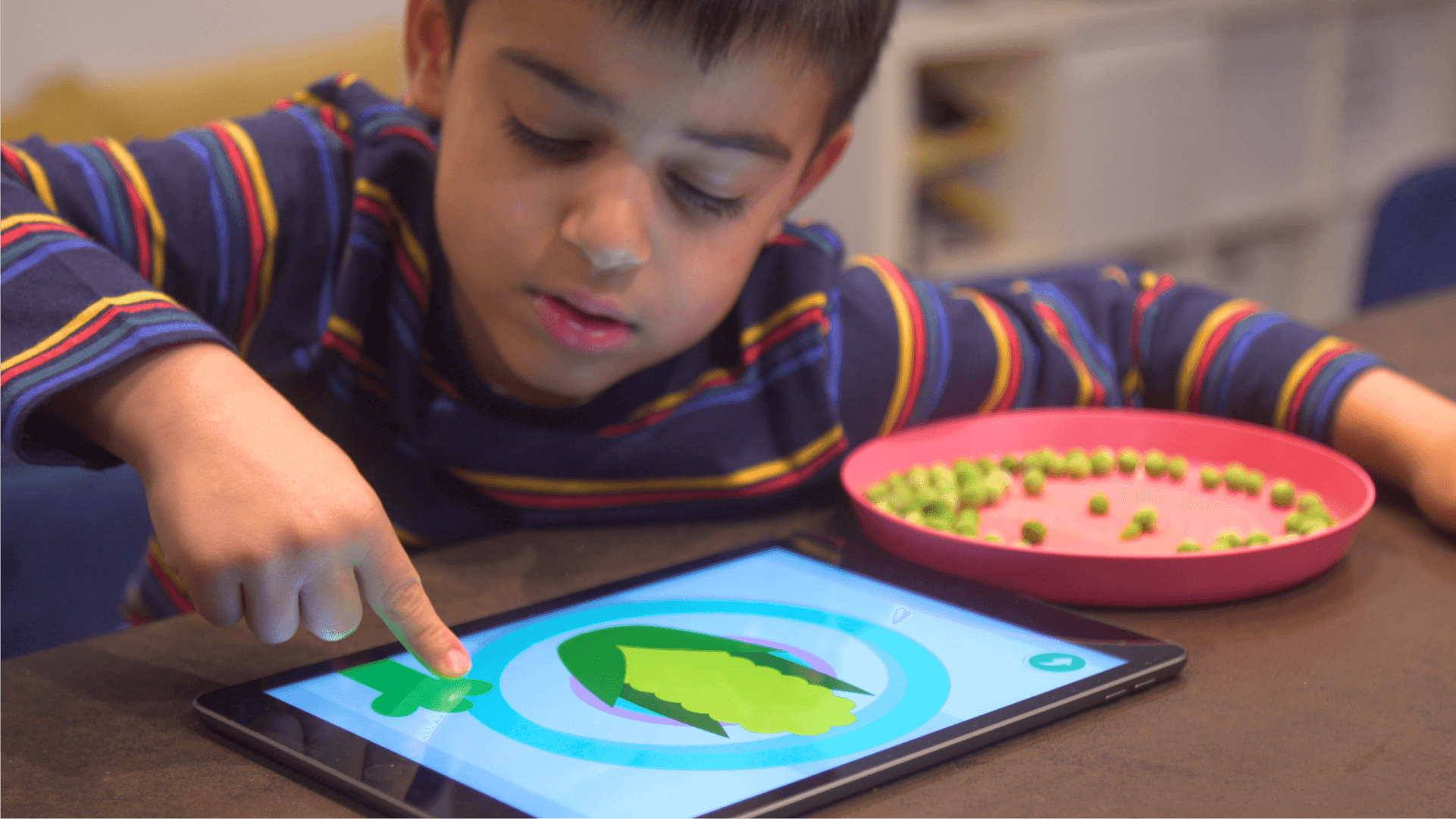
From the team behind Teach Your Monster To Read and Teach Your Monster Number Skills, Teach Your Monster Adventurous Eating is a unique game that encourages kids to eat a broader range of fruit and veg and build a better relationship with food.
Designed in collaboration with Dr. Lucy Cooke (an expert in children's food preferences and eating habits,) Teach Your Monster Adventurous Eating is packed full of fun mini-games that encourage kids to explore new foods with all five of their senses.
Winner of the 2023 Games For Change Award for Best Learning Game, Go Nisha Go is aimed towards adolescent girls, and has been developed to empower players to make informed choices and shape their future with confidence as they grow out of childhood and into adulthood.
The story-driven game provides an entertaining space where adolescents can discover, learn, and build decision-making skills through interactive role play in a virtual world. Players go on a journey with the game's protagonist, Nisha, helping her navigate the course of her life.
Avokiddo Emotions lets kids of all ages explore feelings in a free play style. There are no rules or pre-set expectations other than to have fun while learning fundamental social skills.
Featuring a zany zebra, a shy sheep, a jolly giraffe, and a modest moose - children discover emotions by dressing up, feeding, sharing toys and interacting with the animals and becoming familiar with their personalities and reactions - inspiring curiosity as kids explore cause and effect relationships.
This simple app explores and demonstrates a way for children to calm down when faced with a frustrating situation. Using the 'breathe, think, do!' method, they'll learn to take long, deep belly breaths to calm down, think of a few strategies to handle the problem, and then do those things.
They'll laugh and learn as they help a Sesame Street monster friend calm down and solve everyday challenges such as putting on shoes, or going to school. This is a great way to help teach young children problem solving, self-control, and planning skills
Positive Penguins is a resilience building app that aims to teach children mindfulness and relaxation skills and to help them challenge negative thinking. Teaching youngsters how to identify and manage these feelings builds their resilience and helps with their overall emotional wellbeing.
The app features 5 minute graded and guided meditation and relaxation exercises to help children understand their thoughts and feelings.

We all know that screens are BIG parts of our lives. From spending all day staring at screens in the office, to a quick flick through social media, passing time in that sweaty tin can of a train journey on our evening commute. But what about for our kids? ‘You’ll get square eyes’ is now a threatening mix of guilty parental feelings and growing concerns over the potential impacts of excessive screen time on well-being and development.
The Digital Dilemma is that special tension between the potential benefits and concerns associated with screen time. On one hand, we know that screens can be powerful tools for learning, creativity, and social interaction. Holistically, screens have led to a more connected world, broadening our horizons and allowing other cultures, languages and experiences into our own front rooms. AND we all felt the massive benefits for education and keeping connected during the pandemic...
On the other hand, excessive screen time has been linked to a range of concerns. In a recent BBC survey of over 2,000 UK parents, 79% felt that their children have been using screens more since the pandemic, with 67% concerned about what their child is viewing. In particular, they were worried about the violence depicted on screen, the addictive nature of certain content and the use of foul language.
Although these factors are a massive concern, we would argue that this comes down to a matter of content and life balance, rather than the issues being with screen-time itself. As parents, carers and teachers, we can empower kids to navigate themselves to safe and fun environments online, just as they would do in the real-world, and alerting adults when they feel unsafe.
Valuable screen-time, such as watching educational programmes or using apps designed for kids, can promote independent learning, discovery and improve communication skills. 70% of the parents surveyed said that it is important that the content their child accesses comes from a trusted source. Trusted sources build for kids on a solid, pedagogical (teaching) basis, grounded in research, and hopefully using educational experts. Make sure to read the ‘about us’ section on gaming websites to find out about the research behind the games. Making it fun and entertaining is important too, keeping those little brains engaged and focused.
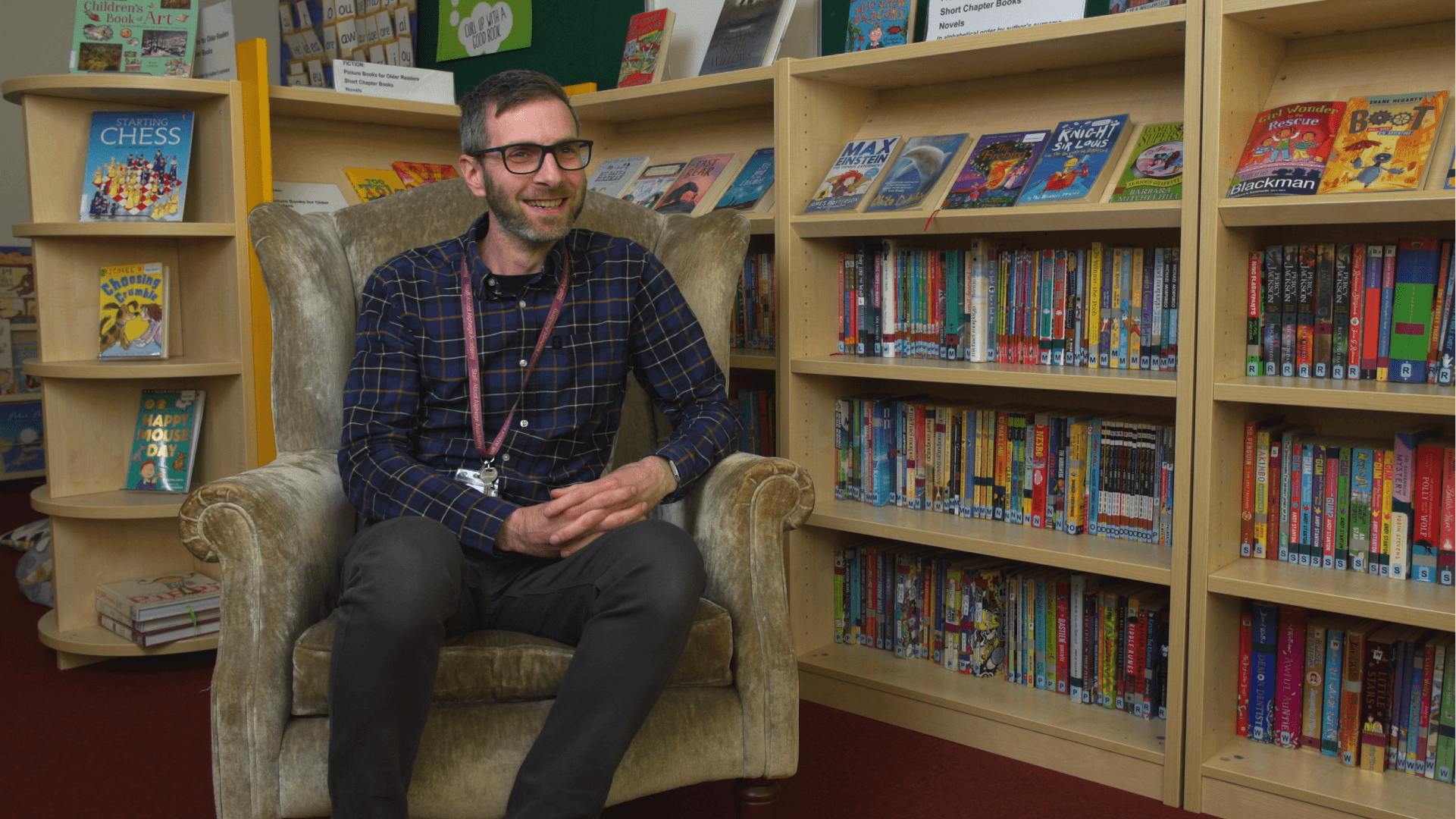
Primary school teacher, Adam Samuel (Abbott Alphege Academy, Bath) argues that “just 10 - 20 minutes of play a day would really help to greatly improve their passion for reading and surely be a welcome distraction during a long car journey!” When I taught in primary school, I would use educational screen time with my year 4 class and the kids always thought it was a reward for their hard-work - a win-win situation!
Making sure that screen-time is balanced with real-life experiences is the second factor and this can be a real joy for both child and parent. Asking kids to count out the number of apples needed at the supermarket can really boost those number skills picked up in that maths song you were listening to before, and why not read some labels using those phonics skills while they’re at it too?
Useful screen-time also presents an opportunity for connection as a family. As Nadia, a parent and Teach Your Monster super fan, says “we all kind of snuggle on the couch and watch them play. It’s a very nice way of having family time, they’re learning and having fun at the same time.”
The same BBC study found that 65% of the surveyed participants agreed that screen time has the ability to foster creativity and communication and an overwhelming 93% said that they are interested in educational programming for their children.
Ultimately, screens aren’t going anywhere so fostering open communication, setting clear boundaries, and prioritising a variety of activities, we all have the opportunity to guide our children towards responsible and balanced usage, in a way that promotes healthy development and well-being. It's worth remembering that square-eyes can be looking through a window into a valuable world of learning.
Finally, check out this awesome animation from the BBC about getting square eyes!
Kay Leathers,
Ex-Primary School Teacher and Contributor at Teach Your Monster.
Mathematics can be a daunting subject for many. Skipping over the fundamentals as a child can mean a lifetime of struggles in this area, which is why it’s so important to build a solid base as early on as possible. Here, we list the best quality math-focused apps for early years learners. on Apple, Android, Amazon and web.
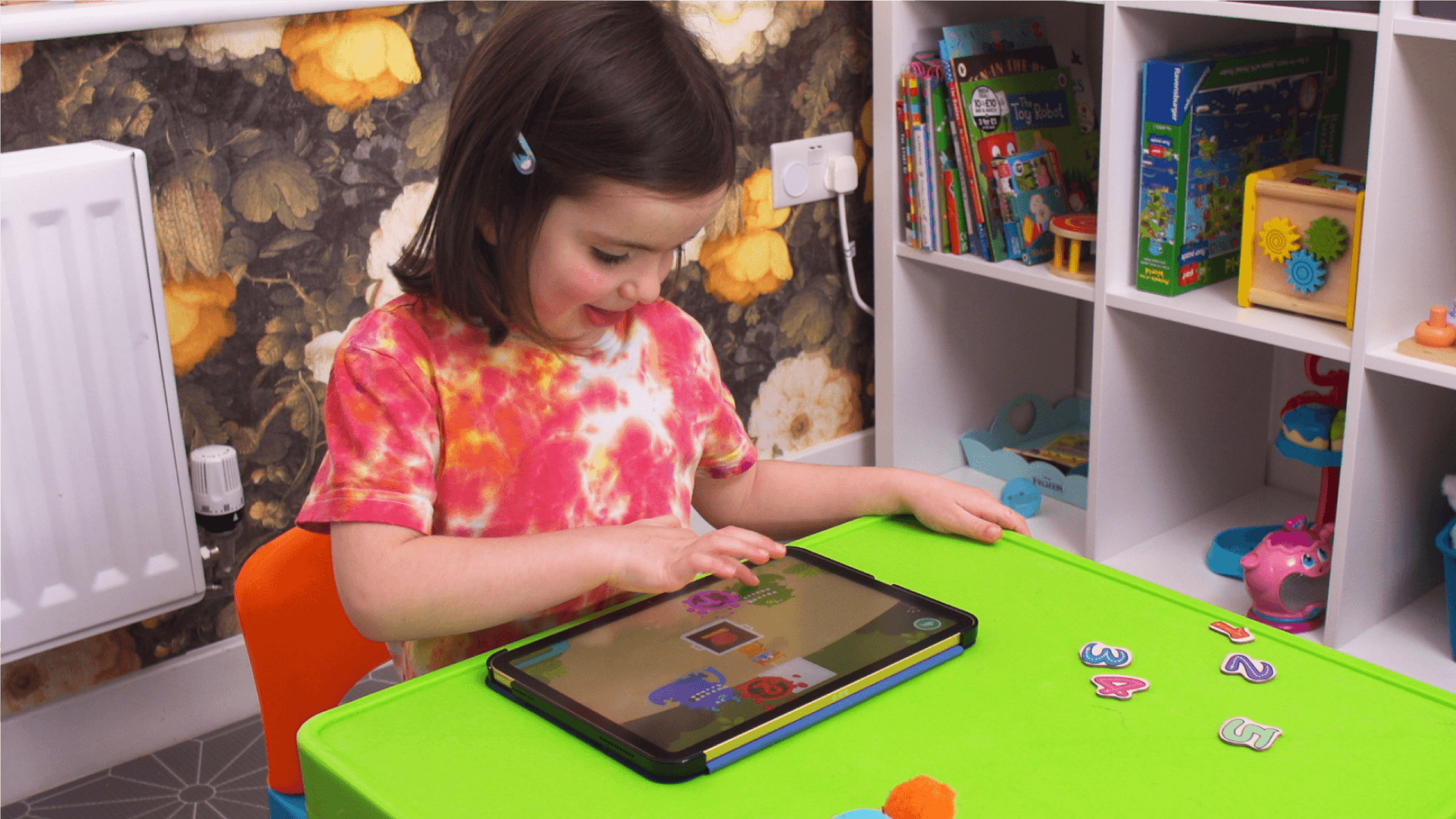
Designed in collaboration with experts in early years mathematics, this fun-filled game offers an exciting new way to practice numbers, using the unique Singapore Mathematics method.
Aligned with the Pre-K/Reception curriculum, Teach Your Monster Number Skills has 40 fun-filled levels designed to build a strong foundation in mathematics, and covers areas such as number bonds, subtraction, addition, counting and much more. A dashboard is also available for both parents and teachers to track progress.
Downside: It currently only features numbers up to ten, with numbers up to 20 coming very soon!
Price: Free trial on iOS, Android, and Amazon. Free to play on PC and Mac
Designed for Reception-aged children, the award-winning Math Makers teaches kids a range of topics, including multiplication, division, fractions and counting, all through fun physics-focused games featuring hilarious, wacky characters. Kids will solve puzzles and carry out exciting challenges to achieve their goals.
Downside: A large number of puzzles require abstract thinking and logical reasoning and offer little to no help in solving them, which can cause frustration.
Price: Free on iOS and Android, includes in-app purchases.
This is a great games-based numbers platform for home learning, to accompany children throughout their early mathematical education and is designed by experienced teachers, gamers and parents. There are over 150 mathematics lessons to practice, with a fully developed comprehensive curriculum that has been designed to mirror school Standards.
Downside: Because this game caters to a large range of abilities, it may not be suitable for everybody within its target demographic.
Price: £2.49. Available on iOS and Android
This official Sesame Street app features Elmo teaching reception-aged children number identification, subitising, number tracing and more. There is tons to explore with songs and videos, coloring pages and games - all focused around numbers 1-20. Plus, parents can track and see what their kids are learning.
Downside: Reviews claim that the image of Elmo only features in the introduction, with the remainder of the game only playing his voice, so kids might be disappointed!
Price: £4.49. Available on iOS and Android
All the essentials of mathematics are covered in this game, including counting, addition and subtraction, place value and writing numbers. Quick Math Jr learns as kids play, adjusting the difficulty of the questions to make sure each individual player is always at a level that is just right for them. The game features a total of twelve games, all aligned with international maths curricula, including US Common Core and the Australian National Curriculum.
Downside: Pricey, at a cost of £7.99
Price: £7.99. Available on iOS
Available in English, Spanish, French, Portuguese and Russian, Drive About Numbers allows preschoolers to “drive”, “fly”, or “sail” around Number Neighbourhood, visiting familiar destinations while learning basic math skills and fine motor skills along the way, through verbal instruction.
This Parents’ Choice award-winning game created by educational game designers encourages free play, allowing kids to practice early numeracy at their own pace.
Downside: There is no clear ending to each game and no reward system upon completion.
Price: £2.49. Available on iOS
Designed to be used both at home and in the classroom, 1-Minute Maths helps pupils build greater number confidence and fluency, with targeted practice in engaging, one-minute chunks. After choosing a topic, users answer a series of randomly generated questions and when the one minute’s up, the questions are automatically marked and presented on a breakdown screen, giving instant feedback on how they’ve done. There are a total of 41 topics with hints available when needed.
Downside: Visually, some may find this game isn’t as exciting as others on offer
Price: Free on iOS, Android, and Amazon
An immersive game with a massive 4000+ library of content to practice, covering over 400 curriculum-aligned maths areas. There are personalised daily learning plans, exciting rewards and narrative-driven games to keep early years learning fun. A real-time progress dashboard offers easy tracking for both parents and teachers.
Downside: Some of the games may feel a little too challenging
Price: Free on iOS, Android and web. Includes in-app purchases
This inclusive and accessible maths app has reached #1 in the Apple App Store in over 20 countries. It covers all the fundamentals of early maths education, including multiplication, subtraction, counting and number concepts. Clocks and calendars also assist children in learning how to tell the time and the days of the week.
Downside: The drag-and-drop and write-in-your-answer options might be tricky to manoeuvre, and some trace numbers, if not written clearly, will not be recognised.
Price: Free to try on Android and iOS, then a range of subscription prices
Finding good quality apps or games to help your Reception or Pre-K aged child learn to read is hard - there are just so many. Here, we list the best apps for early years learners to get them started on their reading journey.
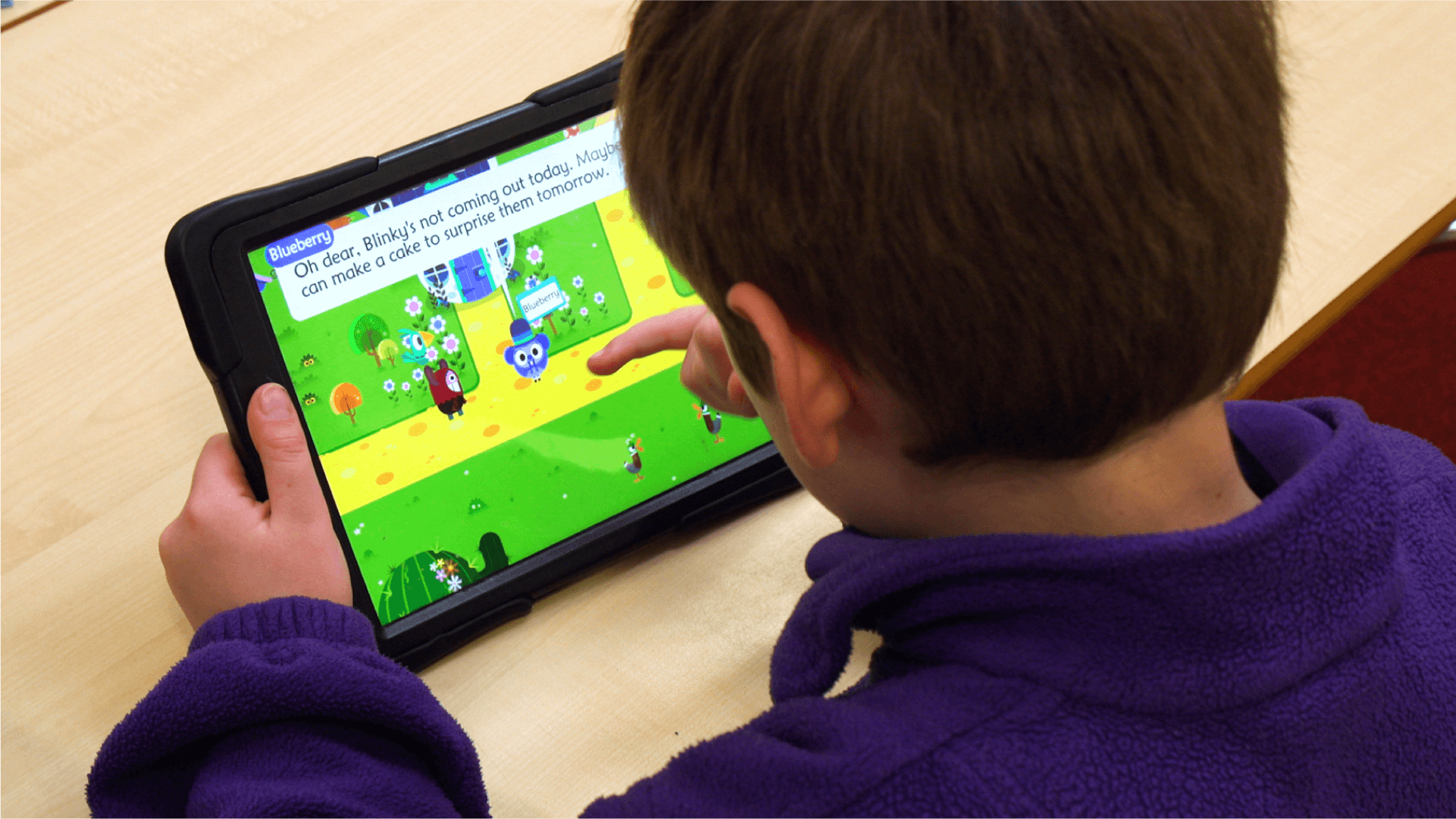
This app, created by non-profit Teach Your Monster - who are part of the Usborne Foundation - is both designed in collaboration with leading academics and aligned with school curriculums. It is suitable for both home learning and in the classroom, complementing all synthetic phonics programmes. Children create a custom monster and take it on its own reading adventure, meeting other fun characters and winning exciting prizes. The game covers everything from letters and sounds, to reading full sentences, and even offers a tracking tool for parents and teachers to see how learning has progressed.
Downside: Some may find games a little repetitive.
Price: £4.99 on iOS, Amazon and Android. Free on PC and Mac
Created as a follow-up to Teach Your Monster to Read, Reading for Fun is focused on helping children develop a love for reading, rather than only reading to learn. Kids carry out fun chores and challenges and are rewarded with e-books, which include everything from comics to recipes - helping reception-aged children learn a variety of reading. With over 70 books on offer, there’s plenty to explore!
Downside: Some children may be frustrated by the need to complete challenges to win their books
Price: Free on iOS, PC and Mac
Designed alongside experts, Duolingo ABC offers a number of interactive stories and 700 bite-sized reading lessons, to help preschoolers build reading fluency over time. Fun imagery and highlighted words assist children in reading independently, and rewards keep kids motivated to learn, whilst building confidence.
Downside: Children are unable to select a starting point, which can be tedious for those who might already be a bit more advanced.
Price: Free on iOS
Following the Homer method - a 4-step process that teaches letter sounds and symbols, then adds those letters into words, words into ideas and then those ideas into knowledge through thinking skills - children are taken on a personalised learning journey, with interactive lessons, activities, stories and more - all adjusted by age, skill level and interests.
Downside: There’s an emphasis on alphabet and phonics but with little attention to comprehension.
Price: Free to try on iOS and Android and then $9.99 per month or $59.99 per year
Epic! Offers an unlimited library of over 40,000 books for children to access, from respected publishers such as harperCollins and Scholastic. In-app progress tracking and weekly progress emails help teachers and parents keep an eye on development, and badges and rewards encourage learners to keep motivated. There are two subscriptions to pick from, each one tailored either to families or to educators, and each one allows for a number of profiles.
Downside: Watch out for subscription auto-renewals. Also, the game is not available on Amazon devices.
Price: Free to try. Subscriptions are $9.99 per month or $79.99 per year
Ideal for preschool and kindergarten-aged children, hooked on phonics is designed with the help of childhood education experts and utilises cutting-edge research to assist learners in working on areas that they may be struggling in. There are over 250 songs, award-winning videos, interactive games, reading lessons and e-books on offer and parents will have an insight into progression thanks to reporting features.
Downside: The game focuses on repetition to ingrain ideas but some children may find this a little boring.
Price: Available for iOS, Android, Amazon, Mac and PC. 1 month: $6.99, 1 year: $39.99, lifetime subscription: $49.99.
Designed by the BAFTA award-winning team at Alphablocks Ltd, Meet the Alphablocks is a spin-off from the popular hit TV show as seen on Cbeebies. This fun game helps children learn letter sounds and names, using best-practice phonics as taught in UK schools. Conveniently, videos are available both to stream and download for when you’re out and about.
Downside: Some reviews suggest that a number of games are difficult to find within the app
Price: Free on iOS, Android, and Amazon
Used by over 20 million children across thousands of schools, this award-winning app features alphabet games, spelling games, phonics activities, word puzzles, nursery rhymes and over 3,000 story books for kids.
Five essential components of reading are covered: Phonics, phonemic awareness, vocabulary, fluency and comprehension, and much like the other great educational apps we’ve mentioned so far, a reward system motivates children to keep going!
Downside: Design feels a little outdated and a subscription is required
Price: Available on iOS, Android, PC and Mac. 30 days free and then £6.99 per month
Reading magic brings the best-selling Bob Books to life, with a phonics-based reading game featuring a simple drag-and-drop interface. Bob Books characters and full-color animations encourage kids along the path of learning to read and children will master a number of skills, including making the connection between letters and sounds, sounding out simple words, and spelling words that they’ve read. The game includes twelve scenes for a total of 32 words. Four game levels provide increasing learn-to-read challenges for children as they play.
Downside: Unavailable on Android
Price: £2.99 on iOS
Ooka Island transforms teaching foundational reading skills by breaking the process down into thousands of micro-actions — 6,695 to be exact. With a robust methodology and highly adaptive technology, this game personalises each student’s path toward fluent reading.
Built on Dr. Kay MacPhee’s proven, research-based concepts, Ooka Island leads with securing children's phonemic awareness while teaching phonological skills to ensure reading words becomes as effortless as speaking, so that students can focus on comprehension.
Downside: Some reviews state that they had issues with in-game glitches
Price: Free on iOS and Android
At Teach Your Monster, we know that as a parent or teacher, you want to give your child the best possible start in life. We understand that life can be busy and challenging, but we're here to help! Encouraging your child's imagination is a great way to foster their creativity and help them develop important skills that will serve them well throughout their life.
So, where do you start? Here are some fun and creative activities that you can do with your child to help stimulate their imagination:

Arts and Crafts
Arts and crafts are a great way to encourage your child's imagination. You can provide your child with a variety of materials (such as paint, paper, glue, and markers) and let them create whatever they want. Give your child a theme or a prompt to help guide their creativity. You could ask your child to create a drawing or painting of their favourite monster from Teach Your Monster, or to make a collage using different colours and textures. There is so much that they can do! Have a look at Pinterest for inspiration!
Outdoor Activities
Spending time outside is another great way to encourage your child's imagination. You can take your child on a nature walk and encourage them to explore their surroundings. What can they see? What does a tree feel like? Can they describe it to you? You can also provide your child with outdoor toys. Grab some balls, frisbees and jump ropes, and let them come up with their own games to play.
Storytelling
Storytelling is a powerful tool for encouraging your child's imagination. Read them stories and encourage them to ask questions and make connections between the story and their own experiences. You can also ask your child to tell you a story, either by themselves or with your help. This can be a great way to spark your child's creativity and help them develop their storytelling skills. Have a look at our game Teach Your Monster Reading For Fun too. There are over 70 books that your child can read, this will also help develop their storytelling! According to the National Literacy Trust, children who read for fun are more likely to have greater vocabulary and writing skills, which help to develop their imagination.
Pretend Play
Pretend play is another great way to encourage your child's imagination. Give them dress-up clothes, puppets, or other props and let them create their own stories and scenarios. This can be a great way to help your child develop their social skills and their ability to think creatively!
Encouraging your child's imagination is an important part of helping them develop into happy and healthy grown ups. By providing your child with opportunities to be creative and to think outside the box, you can help them develop the skills to use everyday.
Good luck, and happy learning!
From Teach Your Monster HQ
You want your child to grow up healthy, strong, and smart, right? Well, there is one simple way you can help in your child's development and it can make a massive impact. Their diet! One of the best ways to ensure that they get all the vital nutrients they need is by incorporating fruits and vegetables into their meals. This can be pretty tough when dealing with picky eaters so what fruit and vegetables can help our kids?
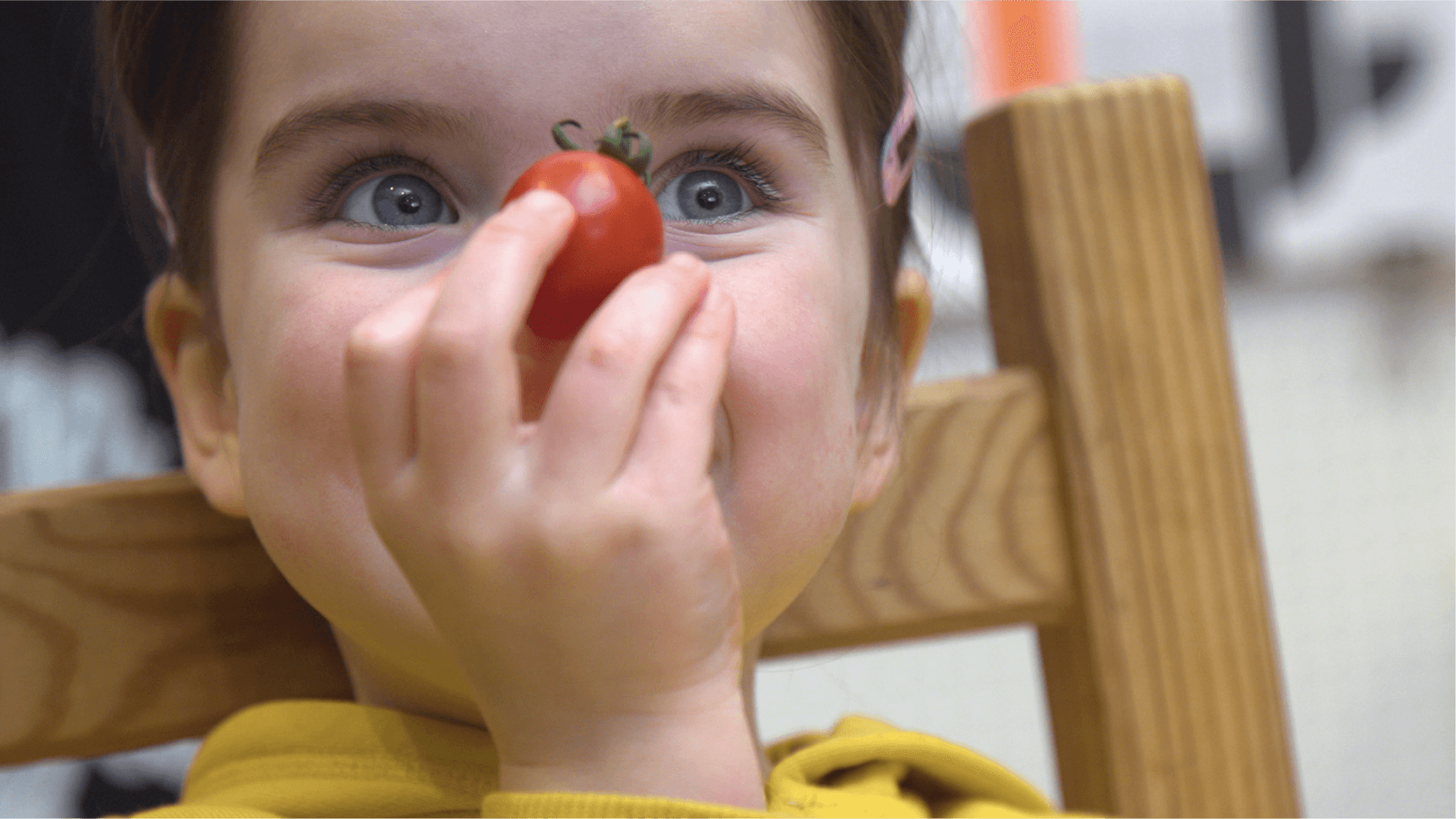
According to the American Academy of Pediatrics, "children who eat a healthy and balanced diet with plenty of fruits and vegetables are more likely to have a healthy weight, be physically active, have good mental health, and avoid chronic diseases later in life". There are a lot of children who don't consume enough fruit and veg. This means it can lead to deficiencies in essential vitamins and minerals that are crucial for their development.
Let’s look at three vegetables and three fruit that can help with your child's development:
Best Vegetables for Children's Development
Broccoli
Broccoli is a great vegetable for children because it is packed with nutrients that are essential for their development. Rich in vitamin C, this helps boost the immune system, and vitamin K, which is necessary for blood clotting! Broccoli is also a great source of fibre too. This helps with digestion, and it contains antioxidants that can help prevent chronic diseases later in life. Wow! Discover some yummy kid-friendly meals here that have broccoli in too.
Sweet Potatoes
Sweet potatoes are another great vegetable for children. They are rich in beta-carotene (which is essential for healthy eyesight!) and they are also a good source of vitamin C and potassium. They have a low glycemic index, which means they won't cause a nasty rapid spike in blood sugar levels. There are so many recipes you can make with sweet potatoes, have a look here.
Spinach
Here at Teach Your Monster HQ, we can’t get enough of spinach! It is an excellent vegetable for children because it is rich in iron, which is essential for healthy blood cells. It is also a good source of vitamin K, which is necessary for bone health, and it contains antioxidants that can help prevent chronic diseases later in life.
A study published in the Journal of Nutrition found that children who consume more fruits and vegetables have better academic performance. By incorporating spinach into your child's diet, you can help improve their cognitive development and support their academic success. Here are some recipes to try!
Best Fruits for Children's Development
Blueberries
Packed with antioxidants, blueberries can help prevent chronic diseases later in life. They are also a good source of vitamin C and they contain fibre too.
A study published in the British Journal of Nutrition found that children who consume more fruits and vegetables have a lower risk of developing type 2 diabetes. Try adding some blueberries to your kid’s diet, you can even try to make these together.
Oranges
Oranges are another great fruit for children. Not only are they rich in vitamin C and fibre, they also contain folate, which is essential for healthy cell growth and development.
A study published in the Journal of the American Dietetic Association found that children who consume more fruits and vegetables have a lower risk of developing heart disease later in life. Try these fruity kids recipes here.
Bananas
Bananas are an excellent fruit for children because they are rich in potassium, which is essential for healthy heart function. We love this banana bread recipe that you can make too!
Fruits and vegetables are essential for a balanced diet for children. Adding a banana or some spinach into their meal can help ensure that they get the essential nutrients they need for their development. So, the next time you plan your child's meal, make sure to include a rainbow of fruits and vegetables to support their growth and development.
Do you have a fussy or picky eater? Teach Your Monster Adventurous Eating can help! Children can use all their senses to explore fruit and vegetables in our game and make them a little braver next time they try different foods. It’s free on our website so, why not give it a go?
Good luck, and have fun exploring fruit and vegetables together!
From Teach Your Monster HQ
Phonics education is all about teaching children the sounds that letters make, and how to combine those sounds to form words. It's a crucial foundation for building strong literacy skills. It has been shown to improve reading accuracy, fluency, comprehension, and overall enjoyment of reading. Have a look at the National Literacy Trust and what they have to say here!
Why is phonics education so important? Well, research has shown that children who learn phonics in their early years are more likely to become confident readers. They're better able to decode and understand unfamiliar words, which allows them to read more complex texts. This helps them gain a deeper understanding of the world around them.
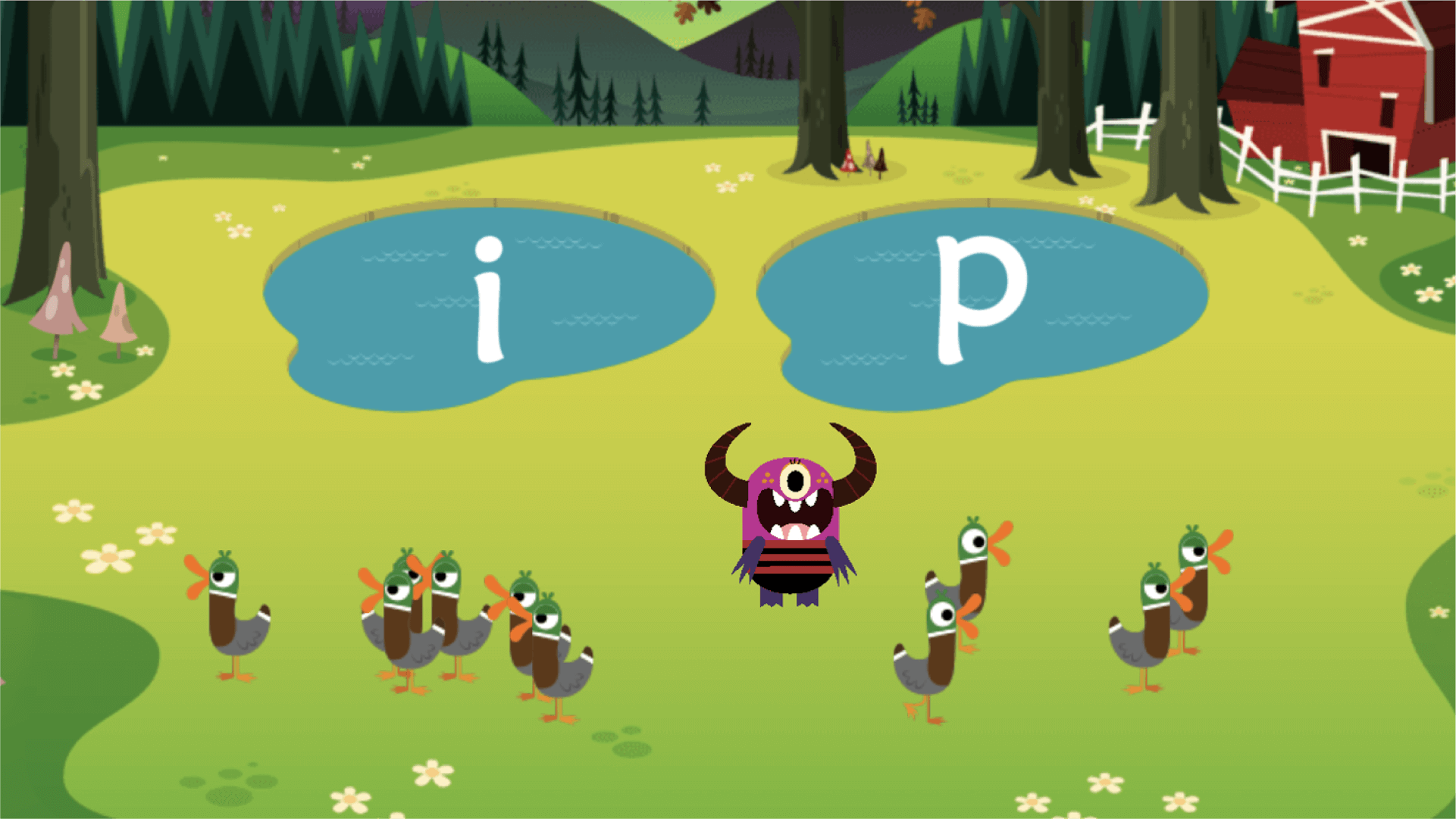
That's where Teach Your Monster To Read comes in! This game is specifically designed to make learning phonics fun and engaging for kids. With colourful monsters, exciting games, and a variety of levels that gradually increase in difficulty, children can progress at their own pace. This helps them feel a sense of accomplishment as they learn and not become overwhelmed. Additionally, the game is designed to be fun and engaging, so children are motivated to continue playing and learning!
The best part? Teach Your Monster To Read is completely FREE to play online! So, whether you're a parent, teacher, or homeschooler, you can easily incorporate this tool into your child's learning routine. Whatever device you have, Teach Your Monster To Read works on a variety of devices and platforms.
How else can you promote early literacy skills? Imaginative play, arts and crafts, and outdoor learning activities are all great ways to help children develop their creativity. It also helps with problem-solving skills, social-emotional development, language, and communication skills, which are vital for reading and writing.
That's why Teach Your Monster encourages you to explore a variety of tools and resources to help your child become a confident and successful reader. Whether it's playing with educational toys and games, engaging in outdoor activities, or simply reading together as a family, there are so many fun and effective ways to promote early literacy skills and overall development.
If you're looking for a way to help your child improve their reading skills and develop a love of learning, check out Teach Your Monster To Read. With the right tools and resources, you can help your child become a confident and successful reader while promoting their overall development and well-being.
Good luck, and happy learning!
From Teach Your Monster HQ

















